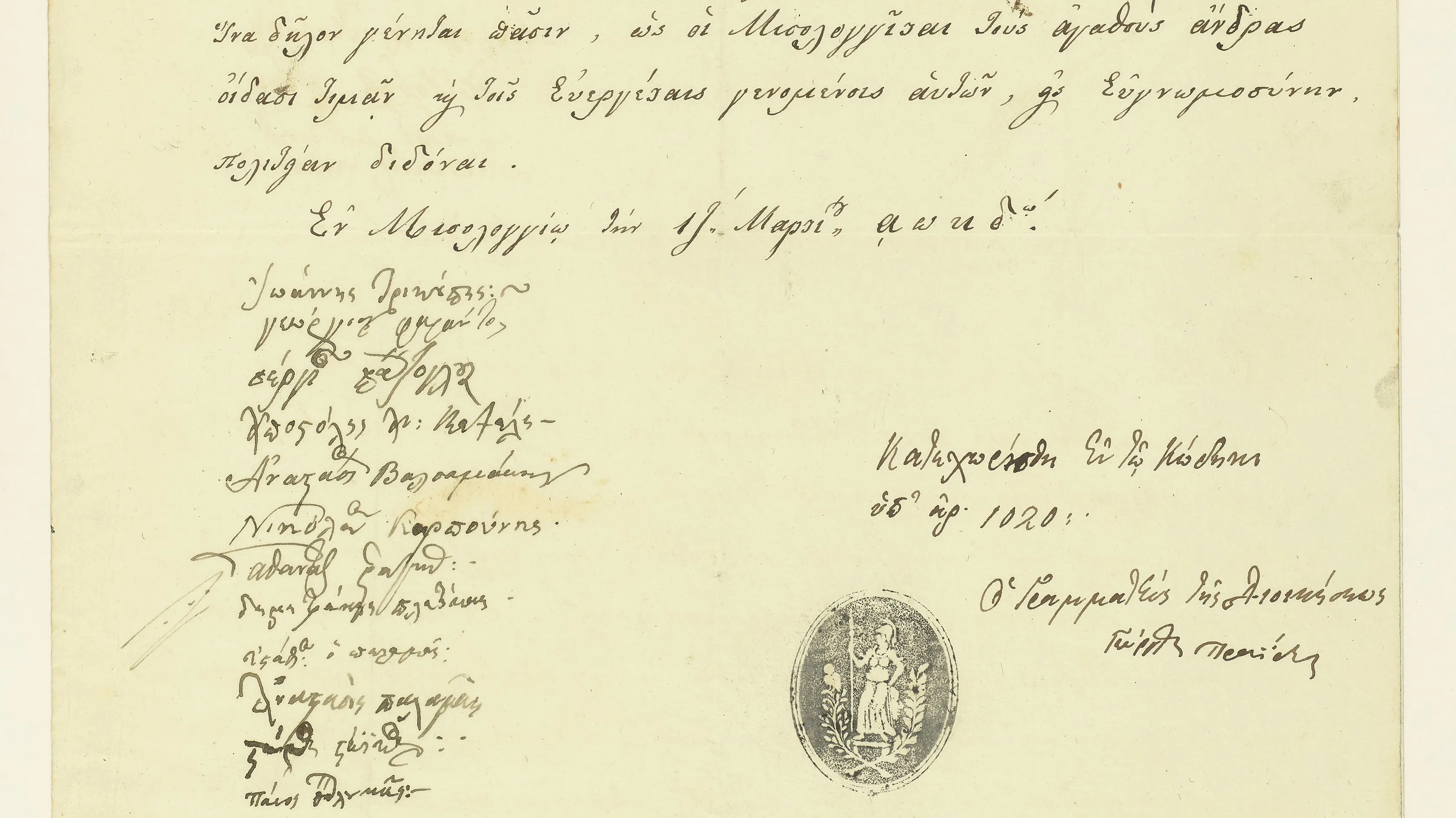
A handwritten phrasebook, the poet’s final journal and a certificate granting him the freedom of the town where he settled, and died, feature in the exhibition.
The artefacts, which are emblematic of Byron’s intense love affair with the country, are part of an exhibition that explores Scottish–Greek connections in the early 19th century.
Although famously described, by Lady Caroline Lamb, as ‘mad, bad and dangerous to know’, the great Romantic poet– who spent his childhood in Aberdeenshire – was revered throughout Greece.
George Gordon Byron was a vociferous champion of the Greek struggle for independence, which began 200 years ago, and his death at Missolonghi in 1824 was widely mourned.
The exhibition, to be held in the University’s Main Library, explores Byron’s Greek connections through a series of exhibits loaned from the National Library of Scotland.
Invaluable support
Byron, who used his fame to internationalise the Greeks’ fight for liberty, first arrived in Athens on Christmas Day 1809, when Greece was still under Ottoman rule.
“While most Grand Tourists went to Athens for its impressive archaeology, the ruins seemed to Byron to be ‘a nation’s sepulchre’,” says the exhibition’s curator, Alasdair Grant.
“Among these symbols of death, Byron sought life in the living language of the Greeks. He began compiling a list of useful Modern Greek phrases in a notebook,” says Dr Grant.
Some, such as ‘Not so much ceremony, I pray you’, perhaps give a little insight into the manner in which Byron tended – or wished – to be received.
How much he learned is difficult to tell: Byron filled just 14 pages with phrases and their translations and left the rest of the book conspicuously blank.
Increasingly devoted
Byron returned to Greece in 1823, more than two years into the Revolution, by which time he was becoming ever more devoted to the Greek cause.
In Missolonghi in January 1824, he composed his last completed poem to mark his 36th birthday, written in his final journal. Awake! (not Greece—she is awake!), he wrote, Awake, my Spirit!
Two months later, the people of Missolonghi granted Byron the freedom of their town in gratitude for the funds and celebrity he had brought to the Revolution.
The privilege would not last long: just the next month, he died in his adopted land, suffering from a fever that he described as a ‘nervous disorder’.
Exhibition hosts
The exhibition is hosted by the University of Edinburgh’s School of History, Classics and Archaeology in connection with the University’s Centre for Research Collections.
Edina/Athena: The Greek Revolution and the Athens of the North, 1821–2021 runs until 29 January 2022. Opening times are Mondays to Saturdays, 9am-4pm (last admission at 3:15pm). Admission is free.
The exhibition is supported by the A G Leventis Foundation.
Related links
School of History, Classics and Archaeology
Centre for Research Collections

